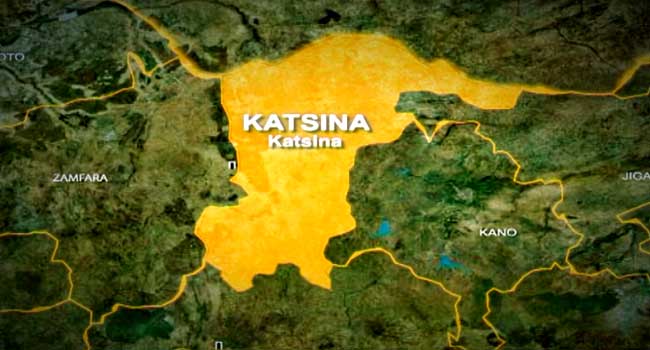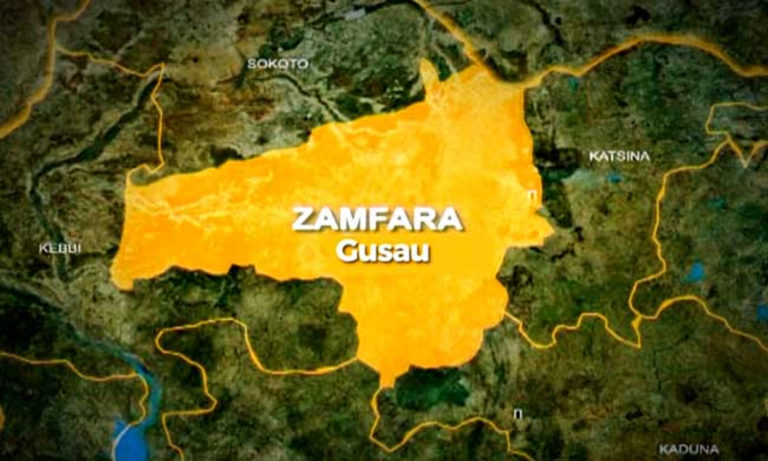Nigeria’s Grains Reserves Down to 50,000MT As FG Releases Commodities To Vulnerable Nigerians


Nigeria’s Minister of Agriculture and Rural Development, Muhammad Abubakar, on Thursday commenced the emergency release of assorted food commodities to vulnerable persons across the country.
Also to benefit from the distribution are federal ministries, poultry associations, and feed millers as well as those in need of food.
This followed President Muhammadu Buhari’s recent directive that 40,000 metric tons (MT) of grains be released from the National Strategic Grains Reserves (SGR) to vulnerable Nigerians to cushion the effects of rising prices of food items.
The depletion of the food reserves brings its current value to about 50,000MT from about 90,000MT it was previously.
The minister, however, said the president had approved funding for the restocking of the food reserves.
The move, according to the minister, was to cushion the effect of high prices of commodities across the country especially as the Ramadan, Easter and Sallah festivities approached.
Read Also MKO Abiola’s Son, Kola Joins Politics, May Run For President
Speaking during the flag-off at the Internally Displaced Persons’ (IDPs) camp in Karmajiji, Abuja, Abubakar said while the measures were temporary, the government would continue to take steps aimed at ensuring that food prices are substantially subdued.
The minister also noted that the incessant bandits’ attacks had displaced many farming communities in some states, disrupted their source of livelihood and rendered them homeless.
He added that some of the victims are currently taking shelter around the schools, mosques and churches while households are in dire need of food assistance to ameliorate their sufferings as they faced untold hardship and food scarcity.
He also said the high prices of maize in the open market had affected the cost of production of poultry feeds and consequently, the availability of the products thereby threatening the poultry industry which had been a major employer of labour for decades.
The minister further pointed out that high fuel prices, insecurity and the low purchasing power of public servants had also made access to food difficult and challenging.
He said, “In the light of the above, and as part of the federal government of Nigeria’s effort to ensure food security and alleviate poverty, Mr. President, Muhammad Buhari has approved the release of 40,000MT of assorted food commodities from the National Strategic Reserve to the vulnerable Nigerians to cushion the effects of rising prices of food items.”
Abubakar further explained that the low-income civil servants and as many that need the relief package would benefit from the intervention, adding that in carrying out Buhari’s directive, the ministry would partner the Ministry of Humanitarian Affairs, which would be distributing about 12,000 metric tons, the Ministry of Women Affairs, Ministry of Youths and Sports as well as other strategic agencies to ensure seamless distribution.
He added the government wanted to ensure that the relief packages got to those who really needed them.
He also said the president had approved funding towards restocking of the RGR adding that “we are currently restocking even as we are releasing”.
He pointed out that though political commitment is absolutely fundamental for addressing the food security challenge, it is “not the complete answer”.
According to him, “Strengthening food systems and chains is a shared responsibility. Governments, industry and consumers all have a vital role and must work together to ensure ‘farm to the table’ food security”.
However, the Director of SGR, Mr. Sule Haruna, said the country’s food reserves had been reduced to only about 32,000 metric tons after the federal government ordered the release of 70,000 metric tons of grains from the SGR as palliatives to vulnerable Nigerians amidst the COVID-19 pandemic.
But he said the reserves had since been restocked to 90,000 metric tons and urged the government to sustain its intervention to further beef up the food vault.










